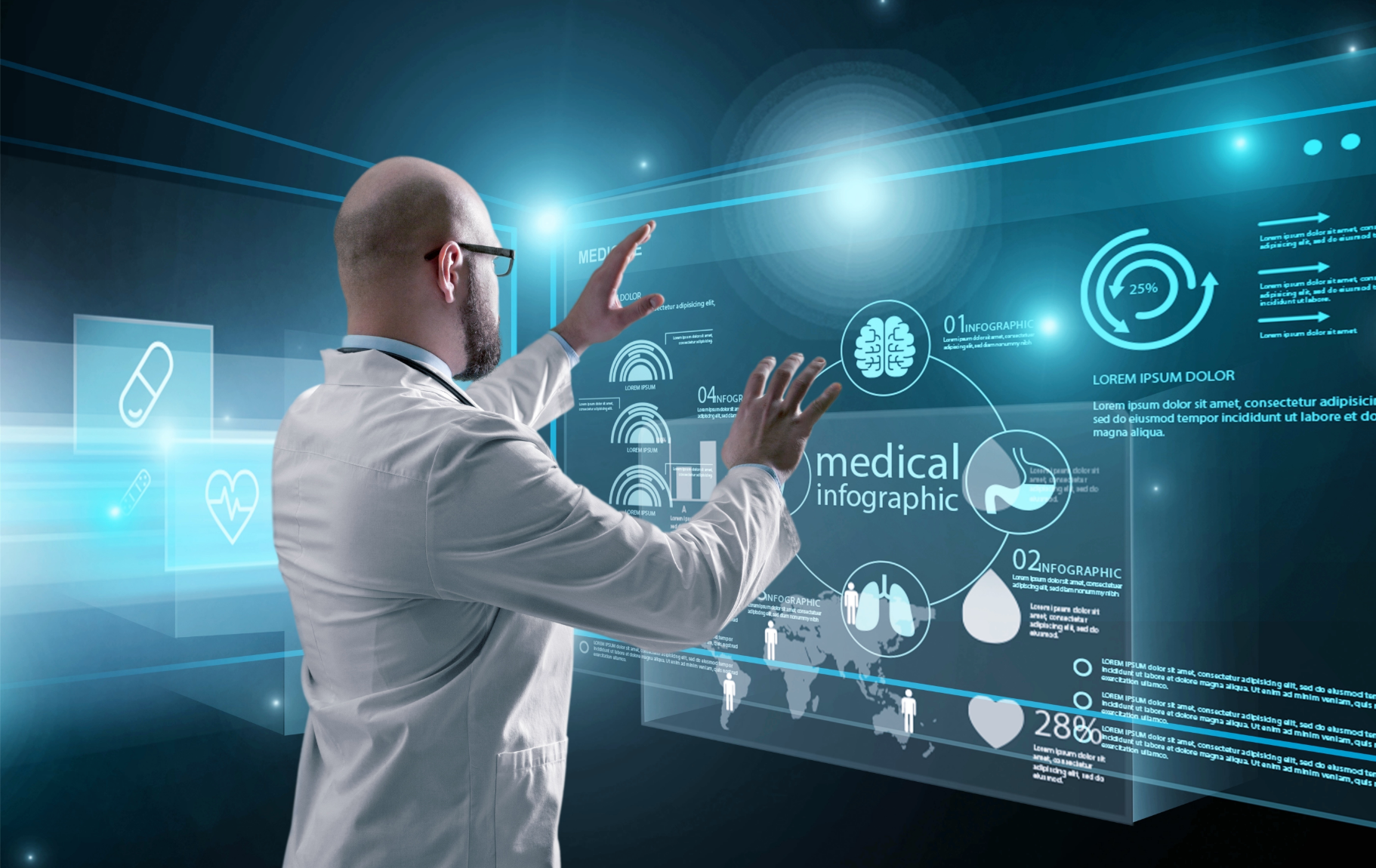The application of Artificial Intelligence (AI) in medicine has been rapidly transforming the healthcare industry. By integrating machine learning algorithms, natural language processing, and robotic technologies, AI is not only enhancing patient care but also improving diagnostic accuracy, treatment planning, and research processes. In this article, we will explore the various ways AI is being utilized in medicine, the benefits it offers, and the challenges that need to be addressed for wider adoption.
1. Introduction to AI in Medicine
Artificial Intelligence in medicine refers to the use of complex algorithms and software to emulate human cognition in analyzing complicated medical data. AI technologies are designed to interpret and act on medical data, often in real-time, to support doctors in decision-making. While AI cannot replace human expertise, it serves as a powerful tool for improving the accuracy and efficiency of healthcare services. AI doctor can take a patient’s medical record and turn it into a likely diagnosis because it can learn from and recognize patterns and relationships in massive, multidimensional, multimodal datasets.
2. Key Applications of AI in Medicine
a. Diagnostics and Imaging
AI-powered tools are making significant strides in diagnostic accuracy, especially in medical imaging. Machine learning models can analyze X-rays, MRIs, CT scans, and other medical images far more quickly and precisely than human radiologists. For example, AI algorithms are used to detect early signs of cancer, such as breast cancer or lung cancer, which can be missed by the naked eye. This results in earlier diagnosis and more effective treatments.
b. Personalized Medicine
AI plays a vital role in the field of personalized medicine, where treatment is customized for the individual patient. Through AI-based predictive analytics, doctors can forecast how a patient will respond to a particular treatment based on genetic information, lifestyle factors, and other health data. This allows for more precise therapies, especially in fields such as oncology, where treatment plans can be tailored to the unique genetic makeup of a patient’s cancer.
c. Drug Discovery and Development
Traditionally, drug discovery is a lengthy and expensive process. AI is accelerating this by analyzing large datasets of chemical compounds, biological data, and clinical trials to identify potential drug candidates more efficiently. AI can predict the outcomes of drug interactions, thereby speeding up the development of new medicines. For instance, AI was used extensively during the COVID-19 pandemic to identify potential treatments and vaccines at a faster pace than conventional methods.
d. Robotic Surgery
AI-driven robots are increasingly being used in surgeries, offering a higher degree of precision than human hands. Robotic surgery systems, such as the Da Vinci Surgical System, enable surgeons to perform minimally invasive surgeries with enhanced accuracy. These robots can analyze real-time data, adjust techniques during procedures, and even predict potential complications. As a result, patients experience quicker recovery times and fewer postoperative complications.
e. Virtual Health Assistants
AI is also transforming the way healthcare providers engage with patients. Virtual health assistants, powered by AI, are becoming commonplace in managing routine healthcare tasks, such as answering patients’ questions, booking appointments, and monitoring symptoms. These virtual assistants use natural language processing to communicate with patients, offering personalized care and advice based on the patient’s history and real-time data.
3. Benefits of AI in Medicine
a. Improved Accuracy
AI-driven tools have been shown to reduce errors in medical diagnostics and treatment plans, leading to better patient outcomes. By analyzing vast amounts of data quickly, AI can detect patterns and anomalies that may be overlooked by humans, improving diagnostic accuracy and reducing misdiagnosis.
b. Efficiency and Cost-Effectiveness
AI has the potential to make healthcare more efficient by automating routine tasks, reducing the workload on healthcare professionals. This allows doctors and nurses to focus on more complex cases. AI can also help reduce healthcare costs by optimizing treatment plans, reducing hospital stays, and minimizing the need for unnecessary procedures.
c. Enhanced Patient Care
With AI-enabled tools, healthcare providers can offer more personalized and responsive care to patients. Virtual health assistants, for instance, can monitor patients in real time, alerting healthcare providers to any changes that require attention. This continuous monitoring leads to more proactive care, resulting in improved patient satisfaction and health outcomes.
4. Challenges in Implementing AI in Medicine

a. Data Privacy and Security
The widespread adoption of AI in healthcare raises significant concerns about data privacy and security. Medical data is highly sensitive, and ensuring that AI systems adhere to strict privacy regulations like the General Data Protection Regulation (GDPR) is essential. Additionally, there are concerns about how patient data is stored, shared, and protected from cyberattacks.
b. Ethical Considerations
There are ethical dilemmas surrounding the use of AI in medicine, particularly around decision-making. Can AI systems be trusted to make critical decisions that affect a patient’s health? Moreover, as AI becomes more integrated into healthcare, there is the potential for bias in algorithms, which could lead to unequal treatment of patients from different backgrounds.
c. Regulation and Compliance
The regulatory landscape for AI in healthcare is still evolving. Governments and medical boards need to establish clear guidelines on how AI technologies should be developed, tested, and implemented in clinical settings. Regulatory approval processes must ensure that AI tools are safe and effective without stifling innovation.
d. Integration with Existing Systems
For AI to be widely adopted in medicine, it must be seamlessly integrated into existing healthcare systems. This requires not only technological advancements but also training healthcare professionals to work alongside AI tools. Resistance to change from medical staff can also be a barrier to adoption.
5. The Future of AI in Medicine
The future of AI in medicine looks promising. As machine learning algorithms become more sophisticated, AI has the potential to revolutionize many aspects of healthcare, from disease prevention to treatment. The rise of AI-powered wearable devices and home monitoring systems will further empower patients to take charge of their health, while medical professionals can focus on more complex tasks.
Conclusion
AI is transforming the medical field by improving diagnostics, treatment personalization, and patient care while also reducing costs and improving efficiency. However, to fully realize the potential of AI in medicine, challenges such as data privacy, ethical concerns, and regulatory hurdles must be addressed. The future holds tremendous possibilities for AI to reshape healthcare, offering improved outcomes for patients and more efficient healthcare systems worldwide.
